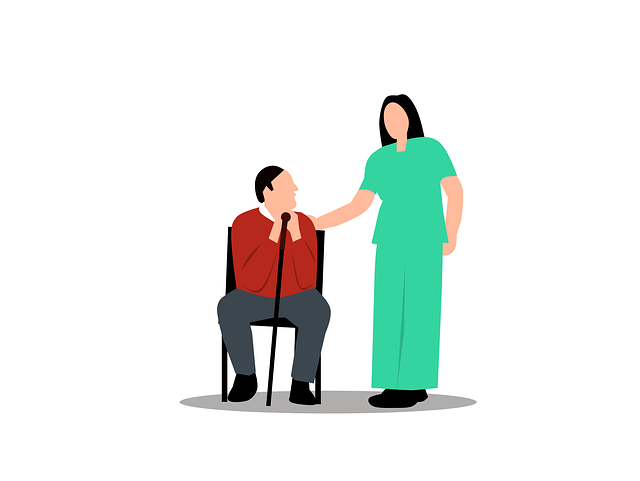Recognizing and preventing elderly sexual assault in nursing homes is crucial. Texas laws protect residents, mandate facility policies, and enable justice through specialized lawyers. Caregivers, staff training, open communication, and effective screening are vital deterrents. Legal action by an elderly sexual assault Lawyer Texas ensures accountability and compensation for victims.
In Texas, ensuring the safety and well-being of elderly residents in nursing homes is paramount. Unfortunately, nursing home abuse, including sexual assaults, remains a significant concern. This article delves into critical aspects of protecting vulnerable seniors. We explore common red flags indicating potential abuse, legal protections afforded to Texas’ elderly residents, and the crucial role of caregivers and staff in prevention. Furthermore, effective screening processes are discussed as essential tools for identifying risks, while also highlighting ways to hold facilities accountable through legal action. An elderly sexual assault lawyer in Texas can guide victims and their families toward justice.
Recognizing Red Flags: Common Signs of Abuse in Nursing Homes

Recognizing potential abuse in nursing homes is a critical step in protecting vulnerable seniors. Common signs that may indicate an abusive environment include physical injuries, such as unexplained bruises or broken bones, and behavioral changes like sudden aggression or withdrawal from social interactions. These red flags could point to physical, emotional, or sexual abuse.
Elderly sexual assault is a serious issue, often overlooked due to the sensitivity of the topic. Nursing home residents may struggle to communicate such incidents, making it vital for caregivers and staff to be vigilant. An elderly sexual assault lawyer in Texas can play a crucial role in advocating for victims’ rights and ensuring justice when abuse goes unreported or undiscovered.
Legal Protections: Rights of Elderly Residents in Texas

In Texas, the protection of elderly residents in nursing homes is a critical concern, with strict legal frameworks in place to safeguard their rights. The state has specific laws aimed at preventing and addressing abuse, including sexual assault, against vulnerable adults. Elderly individuals have the right to live free from any form of harm or exploitation, and nursing home facilities are legally bound to uphold these standards. Any instance of abuse, neglect, or mistreatment can lead to severe legal consequences for the perpetrators.
The Texas laws offer a robust framework for addressing these issues, with provisions that require facilities to have policies and procedures in place to identify, report, and prevent abuse. Elderly residents have the right to privacy and dignity, and any sexual assault or harassment is taken seriously. An elderly sexual assault lawyer in Texas can guide victims and their families through the legal process, ensuring they receive the justice and compensation they deserve for such heinous crimes.
The Role of Caregivers and Staff in Preventing Sexual Assaults

In the context of nursing homes, caregivers and staff members play a pivotal role in preventing sexual assaults against vulnerable residents, especially the elderly. Their vigilance and proactive measures are essential to ensuring the safety and well-being of the population they serve. Caregivers should be trained to recognize signs of potential abuse, including unusual behavior or changes in mood that might indicate discomfort or violation. Regular staff training sessions on patient care, privacy, and consent can help create a culture of awareness and accountability, deterring any form of misuse.
An elderly sexual assault lawyer in Texas would underscore the importance of open communication channels between residents, their families, and caregivers. Encouraging residents to express concerns or report incidents freely can be life-saving. Moreover, staff members should be equipped with protocols for reporting and documenting suspected abuse, ensuring a prompt response from relevant authorities. By fostering an environment of trust, respect, and vigilance, nursing homes can significantly reduce the risk of sexual assaults and protect the dignity of their elderly residents.
Effective Screening Processes: Tools for Identifying Potential Risks

Effective screening processes in nursing homes are paramount in identifying potential risks for elderly residents, especially those susceptible to sexual abuse. Tools such as comprehensive background checks, including criminal and sexual offender registries, can help vet staff members before they are hired. Regular reviews of these records, along with ongoing monitoring, ensure that any red flags are addressed promptly.
Additionally, training programs that educate both staff and residents about the signs and symptoms of sexual abuse are crucial. These programs empower nursing home employees to recognize unusual behavior or changes in a resident’s demeanor, enabling them to take proactive measures. Moreover, open lines of communication between staff, families, and external organizations, such as elderly sexual assault lawyers in Texas, facilitate the quick reporting and investigation of any suspected incidents, ensuring the safety and well-being of vulnerable individuals.
Holding Facilities Accountable: Legal Action for Negligence

When nursing home residents in Texas suffer from abuse or neglect, it’s crucial to hold facilities and their staff accountable for their actions—or inaction. Legal action can be a powerful tool to ensure justice for victims and prompt improvements in care standards. If an elderly resident experiences sexual assault or any form of physical or emotional abuse, consulting with an elderly sexual assault Lawyer Texas is essential. These legal professionals can guide survivors and their families through the complexities of filing a lawsuit against negligent nursing homes.
Through litigation, facilities may be compelled to implement stricter protocols and training programs to prevent future incidents. Successful lawsuits can also provide much-needed financial compensation for victims, allowing them to access quality medical care and legal support. This not only ensures justice but also serves as a stark reminder to other care facilities that abuse will not be tolerated and will have severe consequences.






